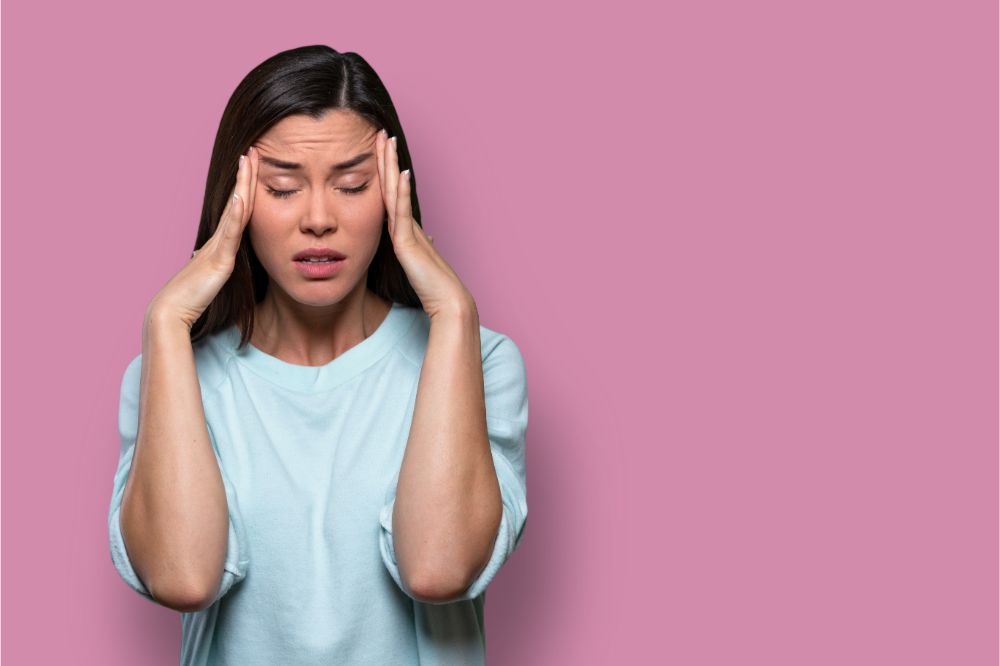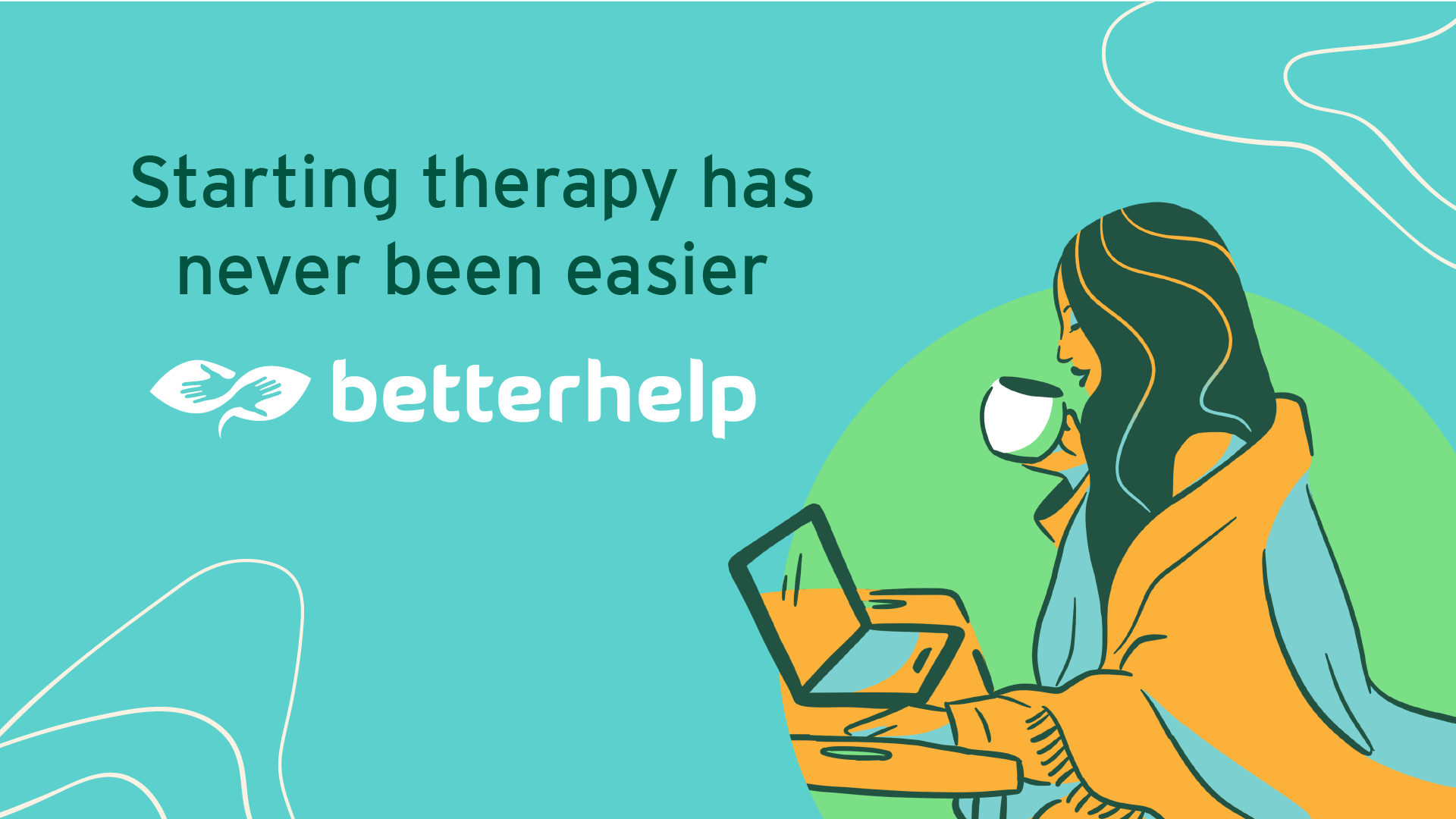As a BetterHelp affiliate, we receive compensation from BetterHelp if you purchase products or services through the links provided
Anxiety can be difficult to live with and can impact your life in various ways. Many people experiencing anxiety may wonder if the feeling will ever go away. The answer to this question is not simple and will vary from person to person.
Some people may experience anxiety at different points in their lives that might resolve entirely, while for others, it may be a lifelong condition that needs to be managed.
Anxiety is a normal emotion that we all experience at times, and it stems from the fight-or-flight instinct that all humans possess, which can warn us of dangers in our environments.
It can be beneficial when anxiety occurs in life-threatening or risky situations, but if you continue to experience anxiety after the crisis has passed, it can become debilitating.

The Difference Between Anxiety And An Anxiety Disorder
Because anxiety is a normal human emotion, it can be challenging to identify whether your feelings are normal or crossing the line into an anxiety disorder.
One of the key identifiers can be when anxiety prevents you from going about your normal activities or when there is no apparent cause for your anxiousness.
Unlike temporary anxiety caused by external factors or risks, an anxiety disorder causes anxiety on a constant or near-constant basis.
Symptoms Of Anxiety
Symptoms of anxiety can vary from person to person, but some common signs are often seen in people with anxiety disorders.
Anxiety can also present with physical and mental symptoms, so it is good to understand how these symptoms might manifest. Physical symptoms of anxiety can include:
- Feeling cold
- Shortness of breath
- Nausea
- Numbness or tingling
- Racing or irregular heartbeat
- Excessive sweating
- Fatigue
- Dizziness
Mental, emotional and behavioral symptoms of anxiety may include:
- Irritability
- Feelings of impending doom, dread, or fear
- Inability to concentrate
- Restlessness
If you’re experiencing any of these symptoms, and they aren’t improving on their own, you may have an anxiety disorder.
It is best to get advice from a doctor rather than wait it out, as treatment can be the most effective way to overcome anxiety.
How Diagnosis Can Help
For most people, anxiety will take time and effective treatment to overcome. This is why seeking a diagnosis is so essential for anyone experiencing anxiety.
The sooner you receive a diagnosis, the sooner treatment can begin and your anxiety managed. If you prefer to wait to see if your anxiety will disappear, it is best not to wait for longer than 12 months.
At that time, most milder cases of anxiety might have cleared up without help, but more severe cases will persist, meaning that treatment will be the best course of action.
Treatment Options For Anxiety
Like many other mental health conditions, anxiety disorders have various treatment options. It is an excellent idea to develop a treatment plan with your doctor based on self-help treatments, talking therapies, and medications when needed.
Various medications can help manage anxiety’s physical and psychological symptoms, so it is a good idea to discuss the options with your doctor.
Self-help can also be an invaluable tool to help you overcome anxiety. Self-care can include things like journaling and mindfulness to help you get to the root cause of your anxiety.
Meditation can help to calm your thoughts and body when you experience intense anxiety, and plenty of resources are available to help you get started.
You can also improve your sleep quality, your diet, and the amount of regular exercise you get.
Therapy is also a standard treatment option taken up by people with anxiety disorders. Sometimes, assessing your anxious thoughts by yourself can be tough.
A therapist can help you unpick your emotions and get to the root cause of your anxiety. They can also teach you healthy coping mechanisms for your anxiety and give you an unbiased person to turn to when your feelings overwhelm you.
Living With Anxiety
Living with anxiety can be hard, so it is vital to find ways to ease the pressure on yourself. It may help to reduce the stressors in your life and ask for help and support from your loved ones.
Talking about anxiety with your friends and family can be challenging, but it can also help them understand your behavior and what you’re going through. It is also important not to be too hard on yourself; anxiety can be debilitating, and you are stronger than you think.
What Can Cause Anxiety To Return?
Because anxiety is a normal emotion, you may find that anxiety returns even after it has gone away for some time.
You might find that anxiety returns due to new stressors in your life because you discontinued treatment too soon or for no apparent reason.
Learning coping mechanisms that can benefit you if anxiety returns can help you manage the condition long-term.
Will Anxiety Go Away By Itself?
There is no easy answer for whether anxiety will go away by itself. It depends on each individual, their circumstances, and specific mental health concerns. In some cases, anxiety may go away on its own.
However, this is not the case for many people who will experience anxiety in their lifetimes. The best way to help overcome fear is to get treatment for the condition.
Developing a well-rounded treatment plan with a healthcare provider can make all the difference in overcoming anxiety.
How To Get Help
The key to managing any mental health condition is practical help and treatment. How long your anxiety lasts will depend on various factors, and in some cases, it may remain an issue you must manage long-term.
Talking to your doctor about your anxiety is a crucial first step toward finding the solutions that help you overcome the condition.
While anxiety may never go away entirely, there are excellent treatment options that can help mitigate its impact on your life. Self-help is often as important as treatment from medical professionals.
A great place to start can be looking at some articles, reviews, and guides on managing stress and countering anxiety here at Rest Equation.





